Pardons Canada understands the challenges a criminal record can impose on you; a pardon, now known as a Record Suspension, can be your key to overcoming these obstacles. It signifies that you’ve maintained a law-abiding life post-conviction, allowing your Canadian criminal record to be sealed from public visibility.
At Pardons Canada, we specialize in navigating this process, advocating for your right to move forward unimpeded by past mistakes.
Is a Pardon / Record Suspension Right for Me?
A pardon may be a pivotal decision to get the most out of professional opportunities, safeguard your family’s future, or travel freely. Pardons Canada prides itself on helping Canadians like you understand the power of this legal action.
If you’re ready to embrace a future separate from your past, we’re here to illuminate the path and support you every step of the way.
How To Tell If You Are Eligible For a Pardon
Determining eligibility can be complex, but you don’t have to do it alone. Pardons Canada is here to provide clarity and guidance on where you stand and when you can begin the application process.
The Record Suspension Eligibility Timeline
Depending on your charge, you need to wait the following period until you are eligible for a Record Suspension or Destruction: (Note: the application process, both preparation and submission, takes time; it is best to start well in advance of your eligibility date)
- 5 Months: Withdrawn, Dismissed or Acquitted Charges
- 1 Year: Absolute Discharges, Stayed Charges and most Peace Bonds
- 3 Years: Conditional Discharges
- 5 Years: Summary Convictions
- 10 Years: Indictable Convictions
- Ineligible: Sexual convictions involving a minor; if an individual has 4 or more indictable convictions, each of which 2 years or more of jail time was served if your offence was after March 2012.
If a withdrawn, acquitted, dismissed, stayed or peace bond charge occurred years ago, the file may be destroyed right away.
For convictions, waiting periods begin to run once the sentence imposed by the court is satisfied (ie: jail time served; fines paid). For all other outcomes, the waiting period begins from the court date.
Legal Definitions
- Withdrawn: The charges were withdrawn in court and it did not go to trial. Usually, the person shows up at court and the prosecutor or the ‘Crown’ (Queen’s lawyer) asks that the charge be withdrawn (thrown out).
- Acquittal: The individual has been proven innocent of an offence.
- Dismissed: The case has been closed or thrown out because there is not enough information to continue with formal proceedings.
- Stayed: Where there is not enough evidence to immediately withdraw the charges but evidence may arise in the near future. Although the offender is found not guilty, their file is not 100% closed for one year.
- Peace Bond: The charges were withdrawn in court and it did not go to trial. A peace bond means that the court ordered the person to be of good conduct and usually imposed conditions, such as the client must stay away from the person they were harassing. Peace bonds are often ordered in domestic or harassment situations.
- Absolute Discharge: In this case the person went to court and was not convicted. They were found guilty by the judge but no punishment was ordered.
- Conditional Discharge: In this case the person went to court and was not convicted. They were found guilty by the judge and a punishment was ordered (often probation, community service or a fine).
- Convictions: A conviction means that the person went to court, was found guilty and was convicted.
- Personal Injury: A personal injury offence is one that falls under Section 752 of the Canadian Criminal Code.


